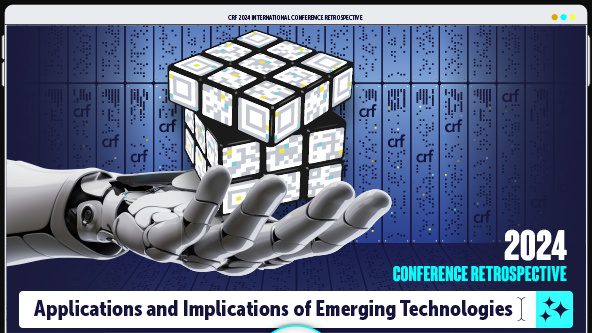Future of Work and People Strategy
Retrospective: Agility 2.0: Building Adaptable Organisations
Agility is the capacity to sense and respond to changing customer needs and to make timely, effective and sustained organisation changes to maintain competitive performance advantage over the longer term. Those organisations which are building adaptable organisations are those which are best placed to survive and thrive in uncertain times.
At CRF’s 13th International Conference, Agility 2.0: Building Adaptable Organisations, leading business thinkers and practitioners took us on a learning journey as we considered what agility means at the strategic, organisational, leadership and individual level.
Over three days in Madrid, our international delegates gathered to consider what features distinguish agile organisations, and how to develop agility across multiple dimensions. Looking at how agile organisations develop strategy, we discovered that they successfully navigate a key paradox: developing a strategy that’s adaptable and allows for rapid course correction as circumstances change, while at the same time remaining anchored to an enduring business purpose. They also allow for distribution of decision-making and rapid responsiveness to cues in the external environment while providing a clear frame of reference for evaluating strategic options.
We also considered the ways in which agile organisations are designed differently:
- Flatter, decentralised structures that maximise surface area in contact with the outside world
- Smaller unit sizes that foster shared commitment and customer responsiveness
- A degree of slack in the system that allows for rapid redeployment of resources
- Networks and cross-functional mechanisms that foster collaboration across silos
- Cultures that promote experimentation, learning from experience and trust
- Individuals who are equipped with the mindset, tools and methodologies to demonstrate agility in their day-to-day work.
Our days were interactive, participative and fun. We discussed, debated, challenged, reflected, and networked. We encountered new ideas, developed new insights, and drew new conclusions.
We hope this Retrospective, with its session summaries, speaker and delegate insights, key takeaways, and further resources, serves as a reminder of the time we spent together, and as a prompt to apply your learning to address your own organisational challenges.
For those who were unable to join us, we hope this Retrospective will encourage you to sign up for our next conference, Applications and Implications of Emerging Technology, 7-9 October 2024 in Valletta, Malta!
Gillian Pillans, Research Director, CRF




